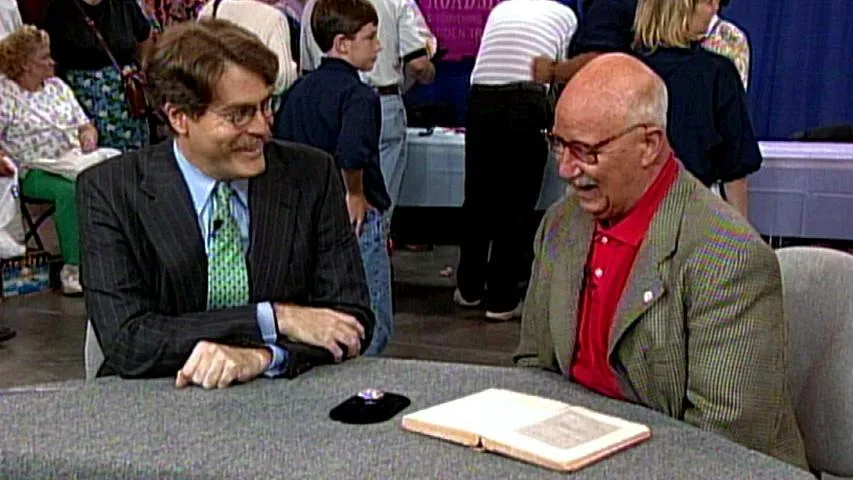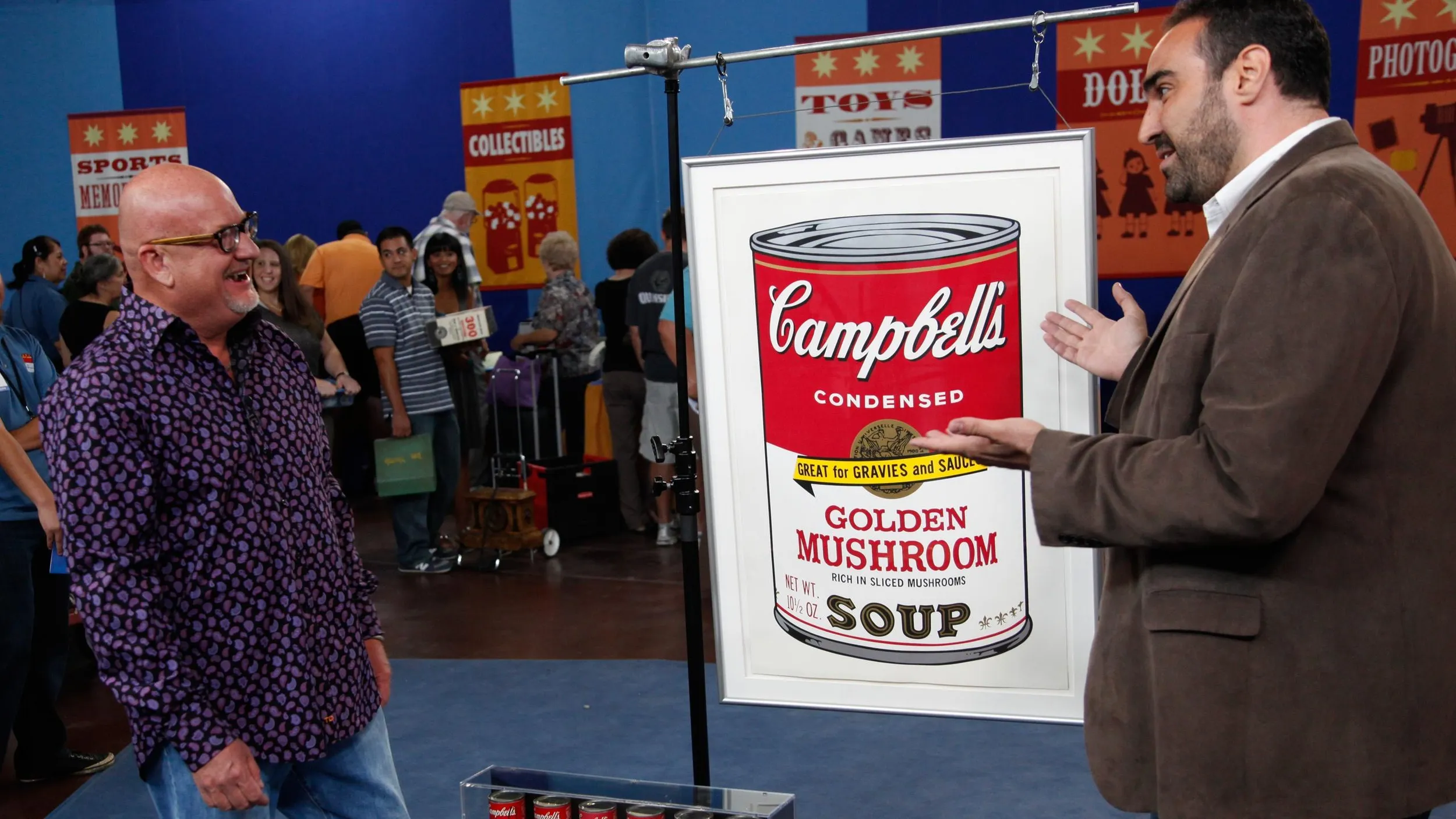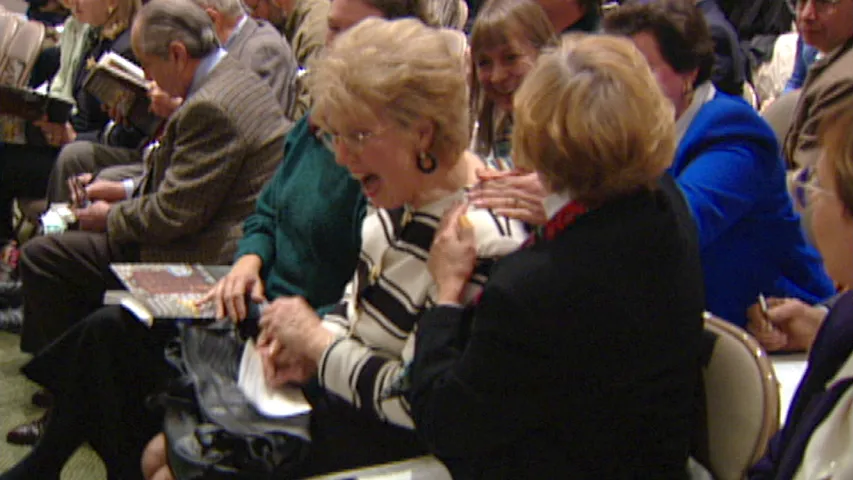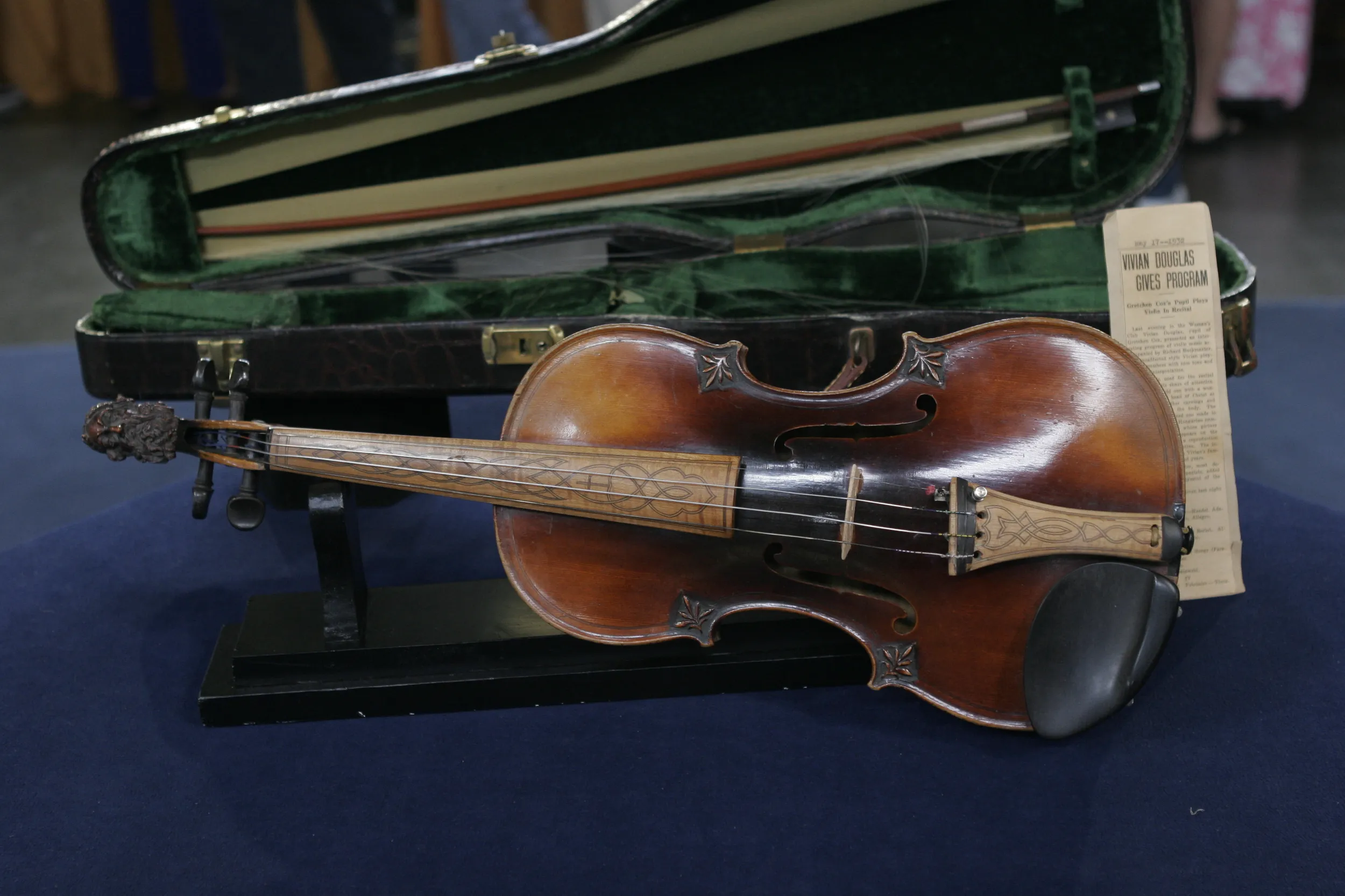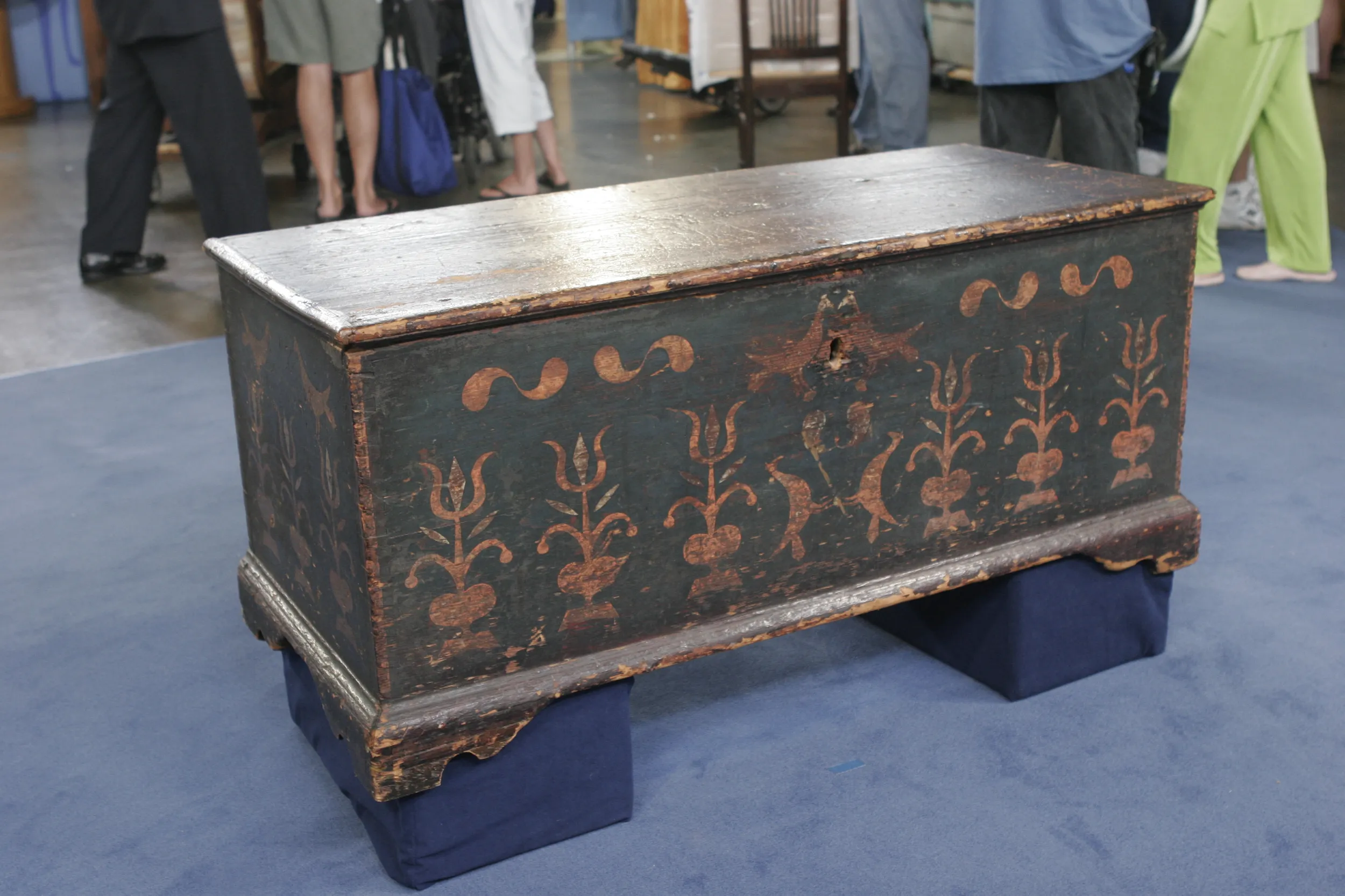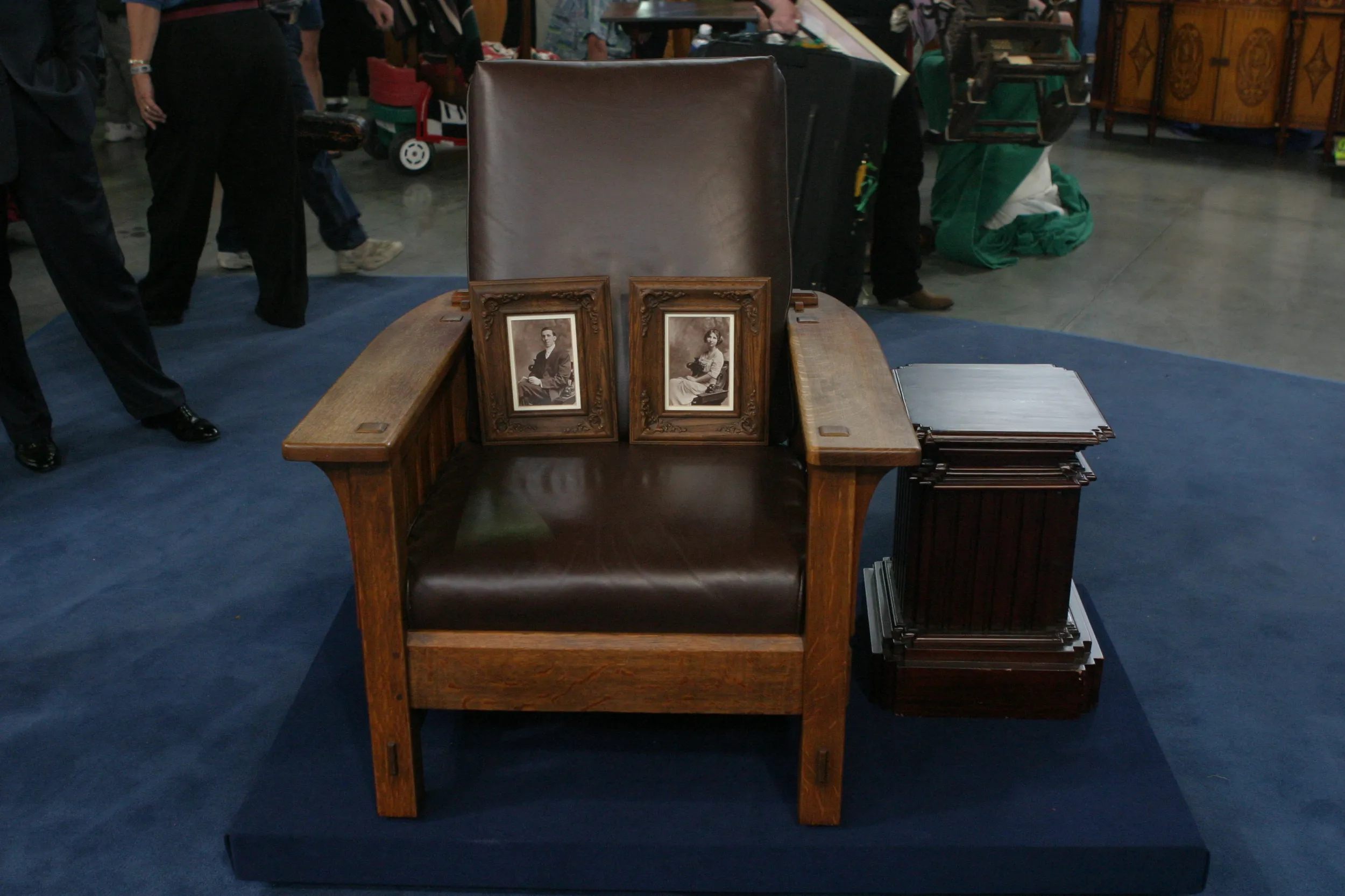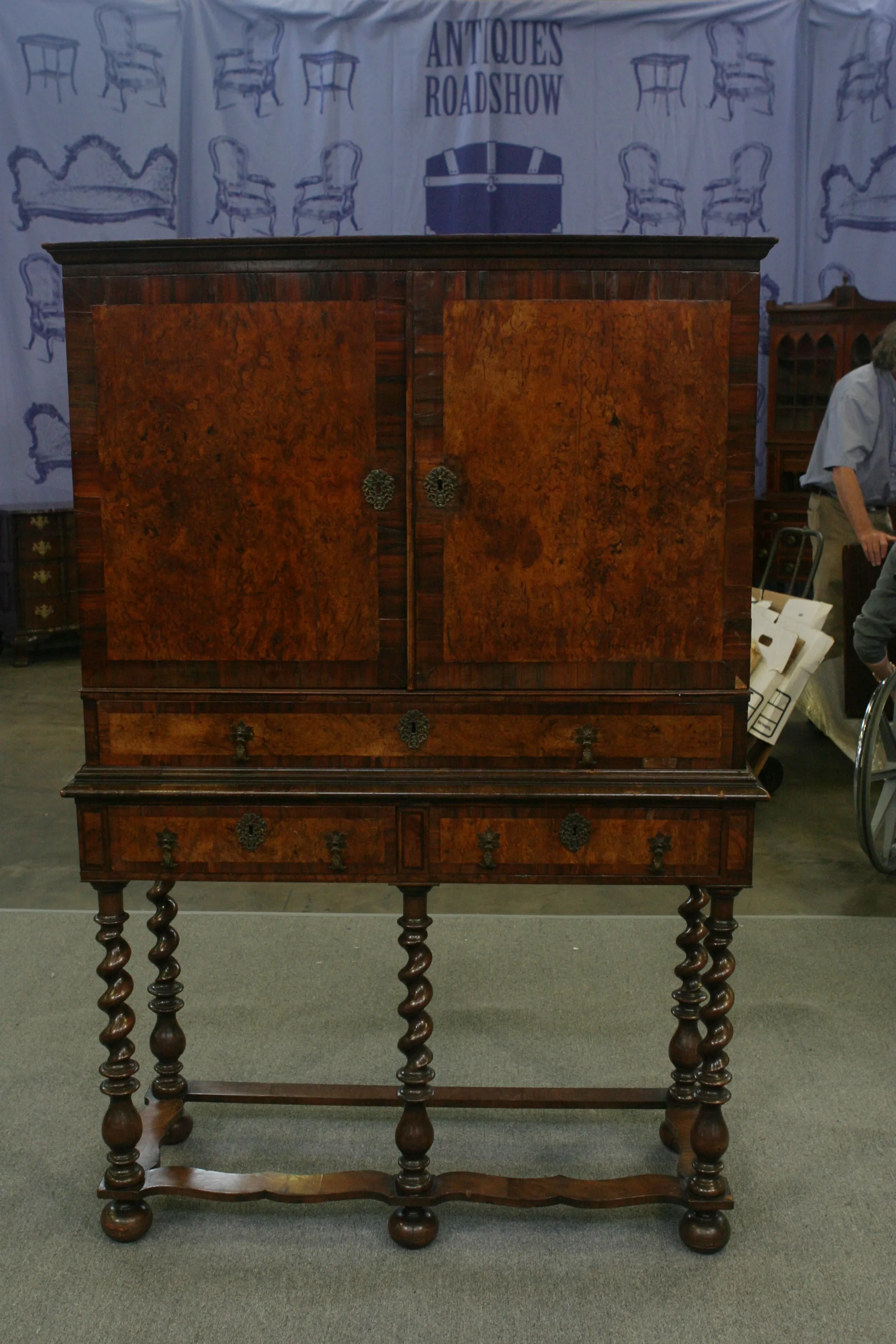GUEST: I went to a garage sale.
APPRAISER: How long ago was this, Claire?
GUEST: This was about 30 years ago. As we moved into our new house, I needed a diminutive table and I thought, I think I know the shape and size and when I saw this out in the yard I thought this is a great thing. It was pitch black. It was a moldy mess. And the lady was asking $30, so I said, "But I only have $25." I said, "That's all I have." She said, "You can have it for $25" and I took it.
APPRAISER: With most pieces from the Federal period we make attributions on the basis of inlay, style, secondary woods. But on your particular table, we're very fortunate-- you are, in fact-- to have the actual label of John Seymour and Son, Creek Square, Boston, which is where they were. And it's a little bit deteriorated but you can still read it. That's just extraordinary because it's so rare to find labeled pieces. What you brought in today here is a Federal inlay mahogany demilune card table made by John and Thomas Seymour, very distinguished cabinetmakers who made some of the most distinguished and fine furniture for the very wealthiest families in Boston at the time.
GUEST: Ah...
APPRAISER: This table, everything about it, even if it didn't have the label, says "John and Thomas Seymour." The quality is incredible. It has this wonderful figured mahogany. The top has these inlaid...
GUEST: Egg and darts.
APPRAISER: Almost an egg and dart with a dot and almost a seed which is sand-burnt-- they used hot sand to color that inlay to give it a three-dimensional effect. If you come down to the edge, this edge has wonderful satinwood inlay, this figured satinwood. It has a typical Seymour coved edge, a veneered front, and on this veneered front, tapering bellflowers-- you see how they taper from small into large and then-- and the bowknot, which is so delicately done, this satinwood bowknot. All of these elements that we're seeing actually came out of English design books from the late 18th century of George Hepplewhite and Sheraton, their design books. But the Seymours took it even to a higher level. We look at this edge. It's all satinwood decorated and then, incredibly, the legs actually have this satinwood band, which tapers down, and there are these bellflowers graduating down the leg and at the very bottom, a bellflower.
GUEST: Yes!
APPRAISER: Now, did you try to clean it at any point?
GUEST: Uh, linseed oil and turpentine. I didn't refinish it. I wiped it off and then I saw this and then I kept going, and I thought, "Well, I'll just see." And I took the dirt all off.
APPRAISER: Well, Claire, luckily, you weren't a really great refinisher...
GUEST: I am!
APPRAISER: No, I'm joking. But if you'd cleaned it a lot more you would have taken a lot off the value. Luckily, it still has a nice old color, and even though you cleaned it... See all the dirt down at the bottom? I love that.
GUEST: That, yeah, that was up here. I just want to say, when we first saw you, my heart started going like this. You can feel it right now.
GUEST: That's right.
APPRAISER: Mine did, too.
APPRAISER: Leslie looked over and said: "Leigh, is that what I think it is?" And as we got closer, you had this upside down, and we saw that label and Les went up to the label and said, "It isn't, is it?" And I said, "It is." So it's really one of the most exciting moments I've ever had-- Les?
APPRAISER: Yes. Absolutely, one of the most exciting pieces I've ever seen.
APPRAISER: Just to be here with this. Do you have an idea of what it's worth or have you gotten some idea?
GUEST: Oh, probably $20,000, now, I just said that.
APPRAISER: I think the estimate we're going to give you is going to top that. I think Les and I both feel that this piece in the open marketplace on a good day, would be in the range of about $200,000 to $225,000.
GUEST” Wow! $200,000 to $225,000?
APPRAISER: Now, I want to say that on a very good day with everything in place, it has the possibility of bringing $300,000. I don't want to get your hopes up that much but $225,000 isn't bad, I guess, right?
GUEST: It's not bad!

